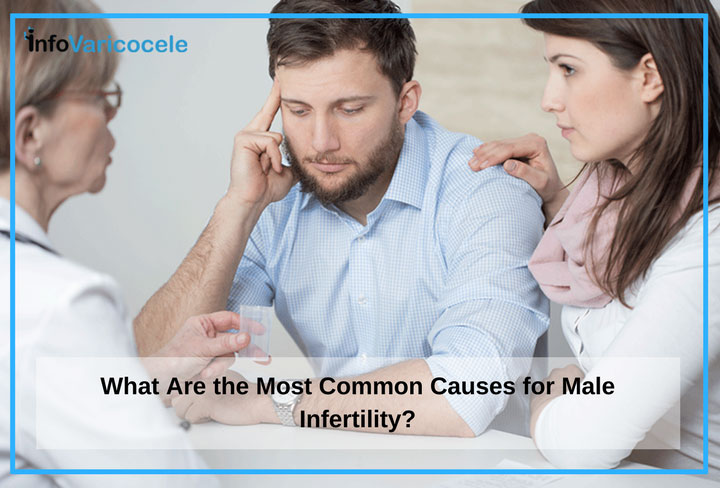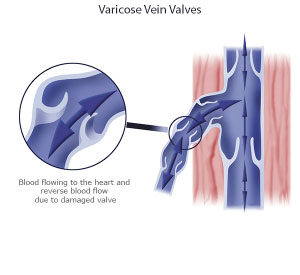
For many men, the possibility that they may be the reason for their partner’s inability to conceive is hard to face. For years, the perception has been that women are the primary cause of infertility issues. Men often have a hard time coming to terms with the fact that they may be a part of the problem. A lot of the time, this is difficult for men simply because they fear the solution may be unsolvable. Fortunately, this couldn’t be further from the truth. Many related causes of infertility in men are very treatable, and the average success rate for pregnancy after some form of treatment ranges between 30% and 50% for infertile couples trying to have their first child.[i] Success rates for achieving subsequent pregnancies are even better.[ii]
RELATED: Ladies, What You Should Do If He Has Been Diagnosed with Varicocele Infertility
The causes of male infertility can be complicated, but there are four basic things that must happen in order for a woman to conceive. Any medical issues in one of these four areas could lead to infertility issues.
- A man must have healthy sperm. This involves at least one functioning testicle along with proper testosterone and other hormone levels. The sperm’s DNA must be high quality as well.
- The sperm must be properly transported into semen. If anything is wrong with the tubes, this could result in male factor infertility.
- A man needs a healthy sperm count. A primary cause of male infertility is a low sperm count.
- There must be good motility in the sperm to achieve pregnancy. In other words, sperm must able to swim to the egg and achieve fertilization. This also means there must be a good environment to help sperm thrive prior to ejaculation.[iii]
There are several causes that can contribute to male factor infertility. These factors can be categorized as follows:
- Medical Causes.
- Environmental Causes.
- Lifestyle Causes.
Medical Causes
 A condition known as varicocele, essentially a varicose vein in the scrotum, may contribute to male factor infertility. In some cases, varicocele causes infertility primarily because it results in an elevated body temperature in the testes and scrotum. It’s important for male reproductive areas to remain cooler than the rest of the body in order for an optimal sperm count and better quality sperm to thrive. With varicocele, veins swell and blood begins to pool in certain areas. This causes the area to become warmer than it should be, which affects sperm. This can lead to a lower sperm count and sperm with damaged DNA.[iv]
A condition known as varicocele, essentially a varicose vein in the scrotum, may contribute to male factor infertility. In some cases, varicocele causes infertility primarily because it results in an elevated body temperature in the testes and scrotum. It’s important for male reproductive areas to remain cooler than the rest of the body in order for an optimal sperm count and better quality sperm to thrive. With varicocele, veins swell and blood begins to pool in certain areas. This causes the area to become warmer than it should be, which affects sperm. This can lead to a lower sperm count and sperm with damaged DNA.[iv]
- Hormone Imbalances. Hormonal imbalances that are related to malfunctioning systems such as the hypothalamus, pituitary, thyroid, adrenal glands, and male hypogonadism – known as low testosterone – can also contribute to fertility problems.[iii]
- Malfunctioning Tubes. Tubes that carry sperm could be injured from surgery, infection, trauma, or abnormal development. They may also be blocked.[v]
- Erectile Dysfunction. Erectile dysfunction can include the inability to keep or maintain an erection, premature ejaculation, painful intercourse, or psychological problems that might interfere with sex.[vi]
- Celiac Disease. Celiac disease is a digestive disorder that’s characterized by sensitivity to gluten.[iii]
Environmental Causes
While there are several environmental factors that can contribute to male factor infertility, one common denominator is exposure to chemicals that have been determined to result in low sperm counts. Some established environmental factors known to cause low sperm count are:
- Industrial chemicals.
- Heavy metal exposure.
- Radiation.[vii]
Some doctors believe certain jobs, like truck driving or welding, contribute to male infertility, but this has not been confirmed.[iii] While men may be exposed to some of these elements in their jobs or daily life, other contributing factors are often things men can alter to improve their condition. Things like wearing tight clothes and using saunas and hot tubs frequently could lower your sperm count.[iii] The overall conclusion is that these habits lead to high body temperatures in the reproductive organs. Often, sperm counts return to normal just by making simple changes in some of these environmental conditions.[viii]
Lifestyle Causes
There are certain lifestyle elements that are suspected of contributing to male infertility. Things like:
- Obesity.
- Emotional stress.
- Illegal drug use.
- Alcohol use.
- Tobacco.[iii]
If you and your partner are having a hard time getting pregnant, you may be wondering if male factor infertility could be part of the problem. If it is male factor infertility, your problem may be remedied. Most issues are very treatable, and better yet, some treatments are simple, like changing your diet or clothing. Other solutions may involve a procedure, like surgery or varicocele embolization. The good news is you have options.
Sources:
[i] http://infertility.about.com/od/causesofinfertility/a/Varicocele-And-Infertility.htm
[ii] http://www.urologyhealth.org/urologic-conditions/varicoceles/after-treatment
[iii] http://www.mayoclinic.org/diseases-conditions/male-infertility/basics/causes/CON-20033113
[iv] http://www.parentingweekly.com/preconception/preconception_information/heat_and_male_infertility.htm
[v] https://www.andrologyaustralia.org/your-health/male-infertility/
[vi] http://www.conceiveababy.com/male-infertility/male-infertility-erectile-dysfunction.php
[vii] http://healthlibrary.uchospitals.edu/Search/85,P01533
[viii] https://trmbaby.com/for-patients/library/conditions/male/


